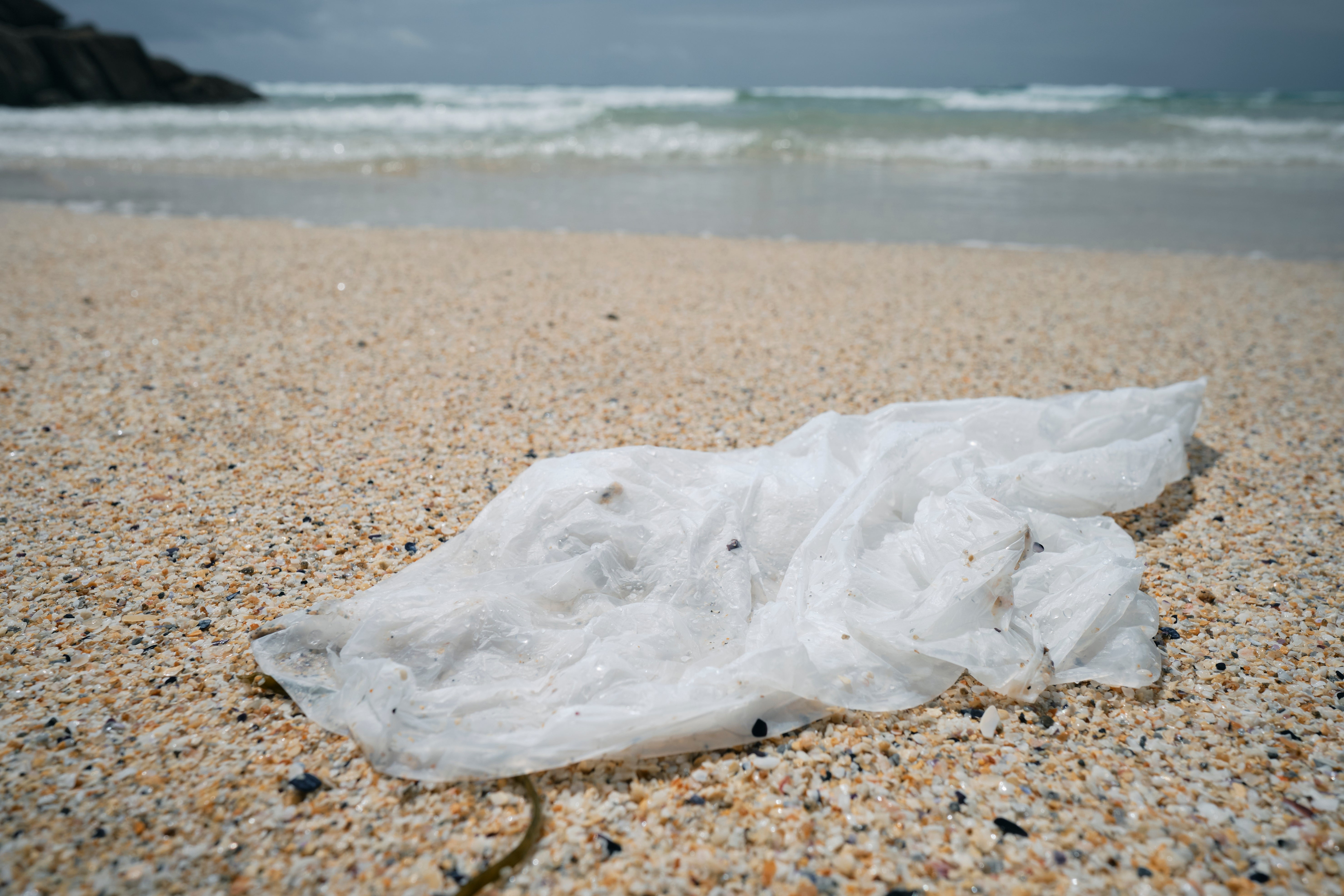Charging for plastic shopping bags can actually lead to cleaner beaches, study shows
The study suggests full bans and fees on plastic bags are more effective than partial bans

Plastic bag bans and fees are actually working to help decrease litter along shorelines, researchers reveal.
Local laws enforcing bans or fees for plastic shopping bags are associated with a 25 to 47 percent decrease in plastic bag litter found during shoreline cleanups, according to a new study in the peer-reviewed journal Science.
The researchers found a decrease in plastic bags along all bodies of water, but the evidence suggests plastic bag regulations have the largest effect along lakes.
The study also shows that some plastic bag regulations are more effective than others. Full bans and fees are more effective than partial bans, likely because of exemptions for thicker plastic bags, the authors wrote.
Anna Papp, one of the authors and an environmental economist and postdoctoral associate at the Massachusetts Institute of Technology, told The New York Times the study shows plastic bag litter reliably decreases when local lawmakers implement regulations.

“This is not a once-in-time snapshot of plastic litter, but really is something that keeps happening again and again,” Papp said.
Environmental scientist Dr. Zoie Diana told the Times the study shows that this decrease in plastic bag litter “wouldn’t have happened anyway...these policies are working.”
Plastic bag bans and fees are growing in popularity. More than 100 countries regulate the bags, and 175 countries are in talks to create the first-ever global plastics treaty, according to the study.
In the U.S., at least 11 states have banned plastic bags altogether, and more than 200 counties have implemented bans or regulations.
Dr. Erin Murphy, manager of Ocean Plastics Research for the Ocean Conservancy, told CNN that plastic bags are more dangerous to marine life than other types of litter.
That’s because they’re lightweight and can be blown into the environment more easily, Murphy noted. Plastic bags can also kill animals that eat them or become entangled in them.
“They’re hard to recycle, they’re single-use, and they’re lightweight, and so they blow very easily in the wind,” she told CNN. “Even if we’re trying to properly manage them, it’s easy for them to escape waste management systems and get into the environment.”
Join our commenting forum
Join thought-provoking conversations, follow other Independent readers and see their replies
Comments


Bookmark popover
Removed from bookmarks